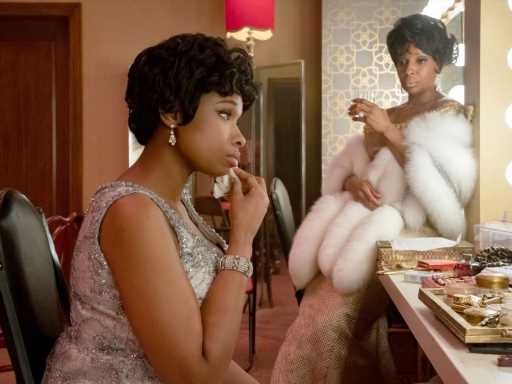In 2002, Halle Berry emotionally accepted a best actress Academy Award for her role in Monster’s Ball, envisioning a world in which she would be the first of many Black actresses to finally receive the Oscar recognition she was due. In 2022, Oscar nominations released today confirm that Academy voters do not share Berry’s vision of a more equitable awards show, with not a single Black woman receiving even a nomination in the best actress category. Black women have long been historically shut out of this category, with staggering performances like Viola Davis in Fences being inexplicably shunted to the best supporting actress category and truly iconic roles like Whoopi Goldberg in The Color Purple losing out to films that did not equally stand the test of time. With this year’s slate of films, Jennifer Hudson’s performance in Aretha Franklin biopic Respect feels like the most notable shut-out from the nominees (Jessica Chastain for The Eyes of Tammy Faye, Penélope Cruz for Parallel Mothers, Olivia Colman for The Lost Daughter, Nicole Kidman for Being the Ricardos, and Kristen Stewart for Spencer) — but it’s really the pattern of Academy voting over decades and decades that points to the huge, institutional issue at play here.
It bears repeating: Over the past 20 years, only one Black woman has won a best actress Oscar (Berry), and she was the first and only Black woman in the history of the Academy Awards to do so. Since its 1929 inception, the Academy Awards have only ever nominated 14 Black women in the best actress category: 14! In nearly 100 years of holding the ceremony, for which around five actresses are awarded this nomination every year, only 14 of those roughly 465 nomination slots have ever gone to Black women. It is impossible to look at these numbers and say that the Academy does not favor white women’s performances and white-led films; the only question is when and if they’ll make changing this a priority.
Black women have fared nominally better in the best supporting actress category, with 25 total nominations in the show’s 93-year history and eight total wins, but it’s worth noting how many of those roles involved them playing characters whose role it is to serve white people, and thinking carefully about how that may have influenced Academy voters’ comfort with and approval of those performances. It must be awfully lonely for Halle Berry, who famously listed the inspirational Black women who came before her and who work alongside her when she accepted her 2002 Oscar, as she year after year sees her Black female peers fail to receive the recognition she hoped she would only be the first to accept.
The Golden Globes were left scrambling to reorganize after it came out that the Hollywood Foreign Press Association, the organization in charge of the awards show, didn’t have a single Black member in its 87-person body. It’s unclear what might throw the Oscars into a similar state of frenzy — but surely, with year after year of disappointing nominees, we can start to push for the progress we deserve when it comes to Academy Awards.
Before you go, click here to see celebrity women of color share the first movie or TV character who made them feel seen.
Source: Read Full Article
